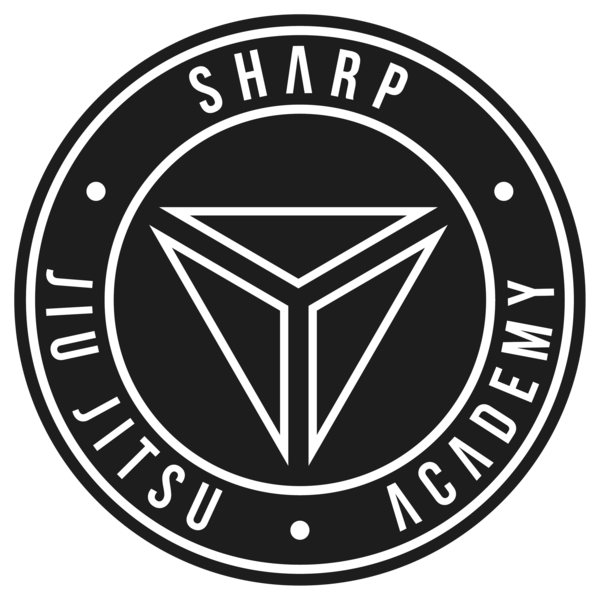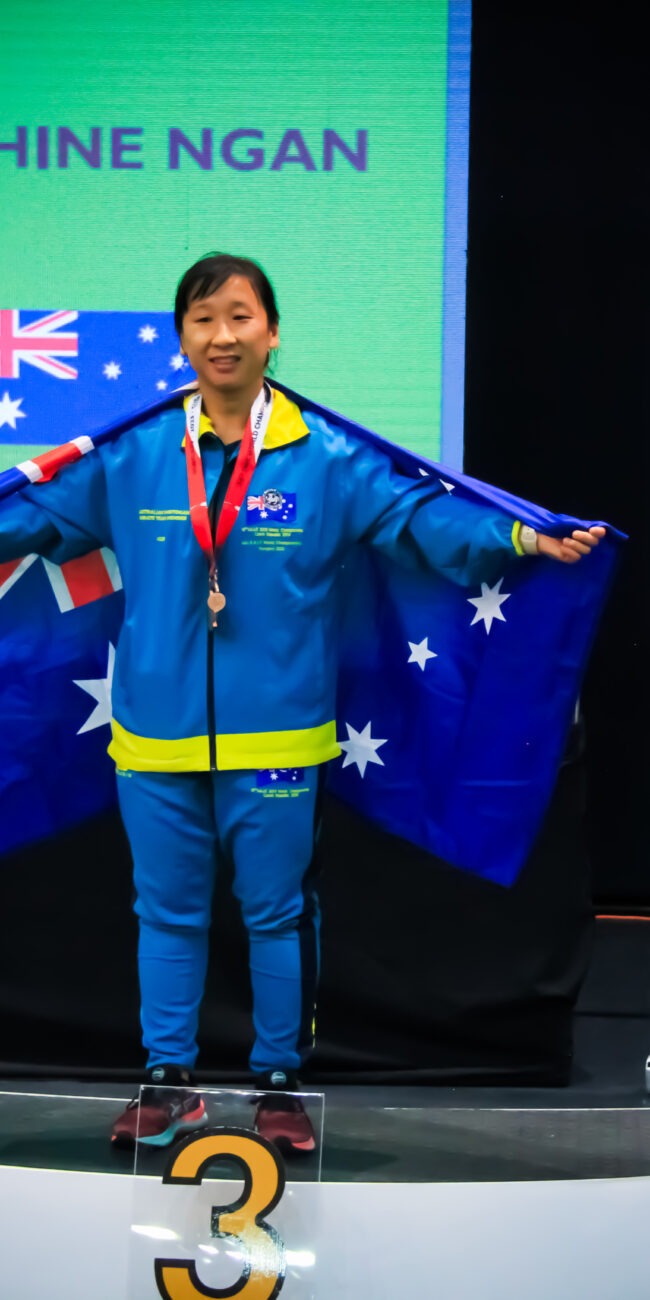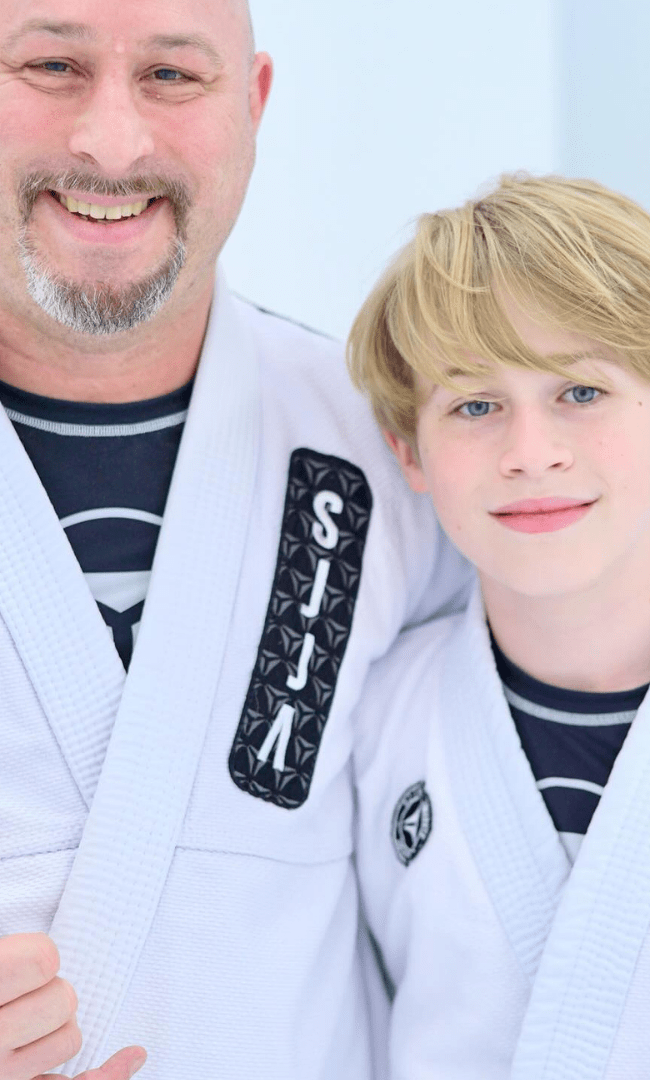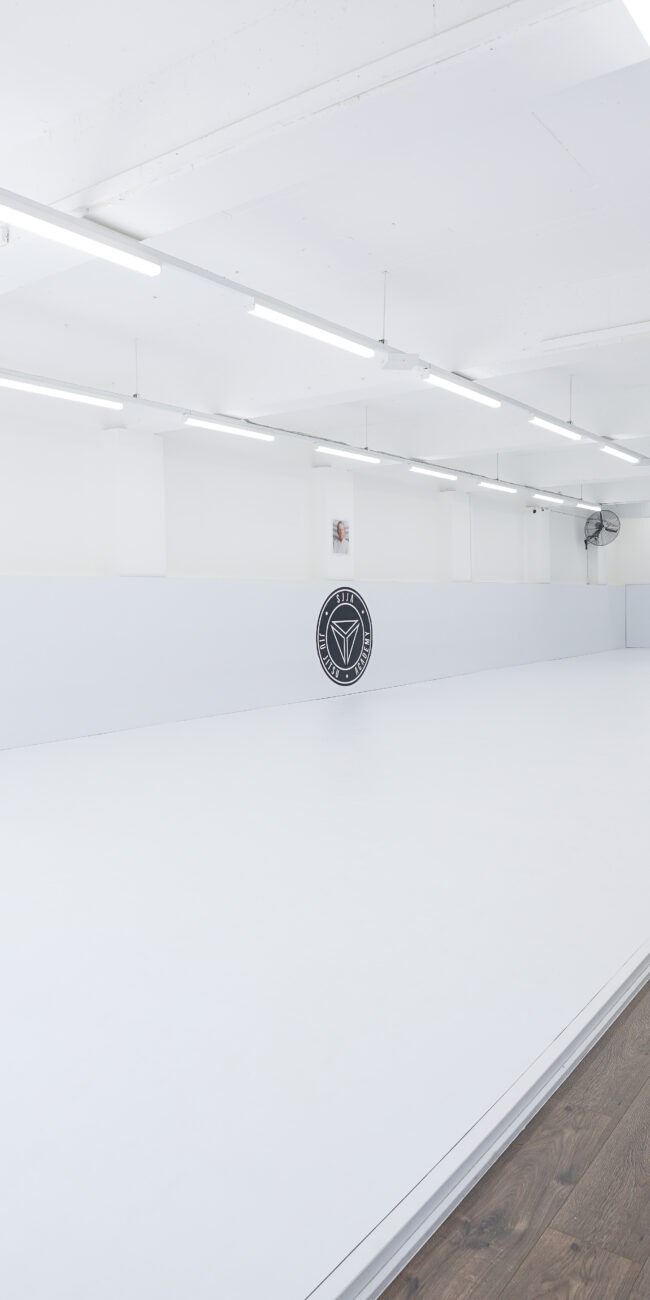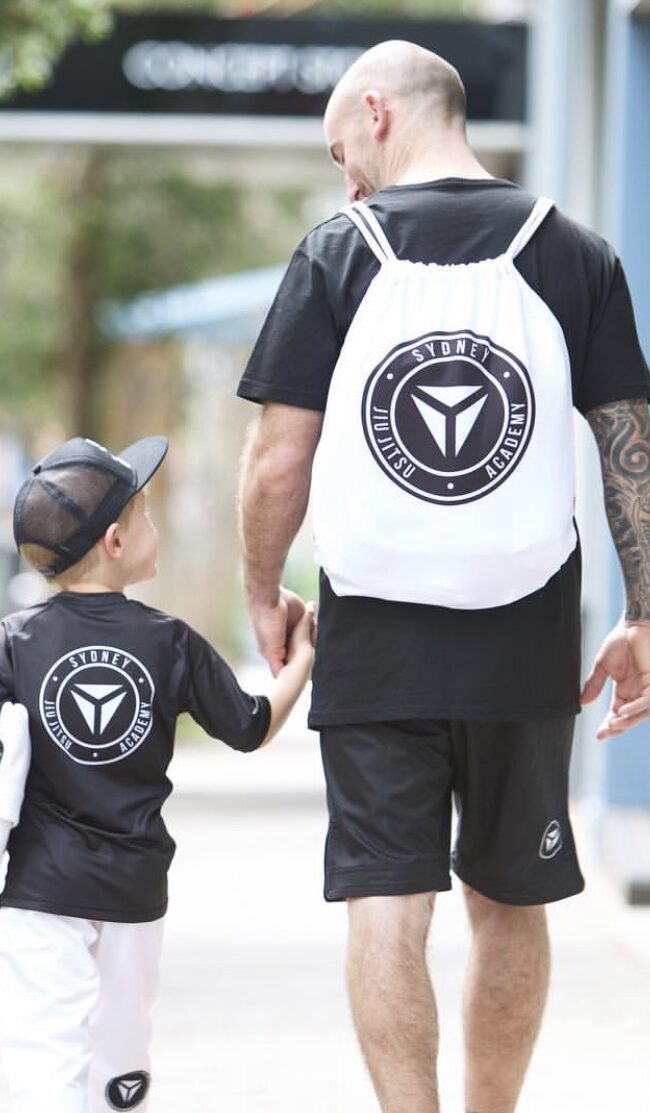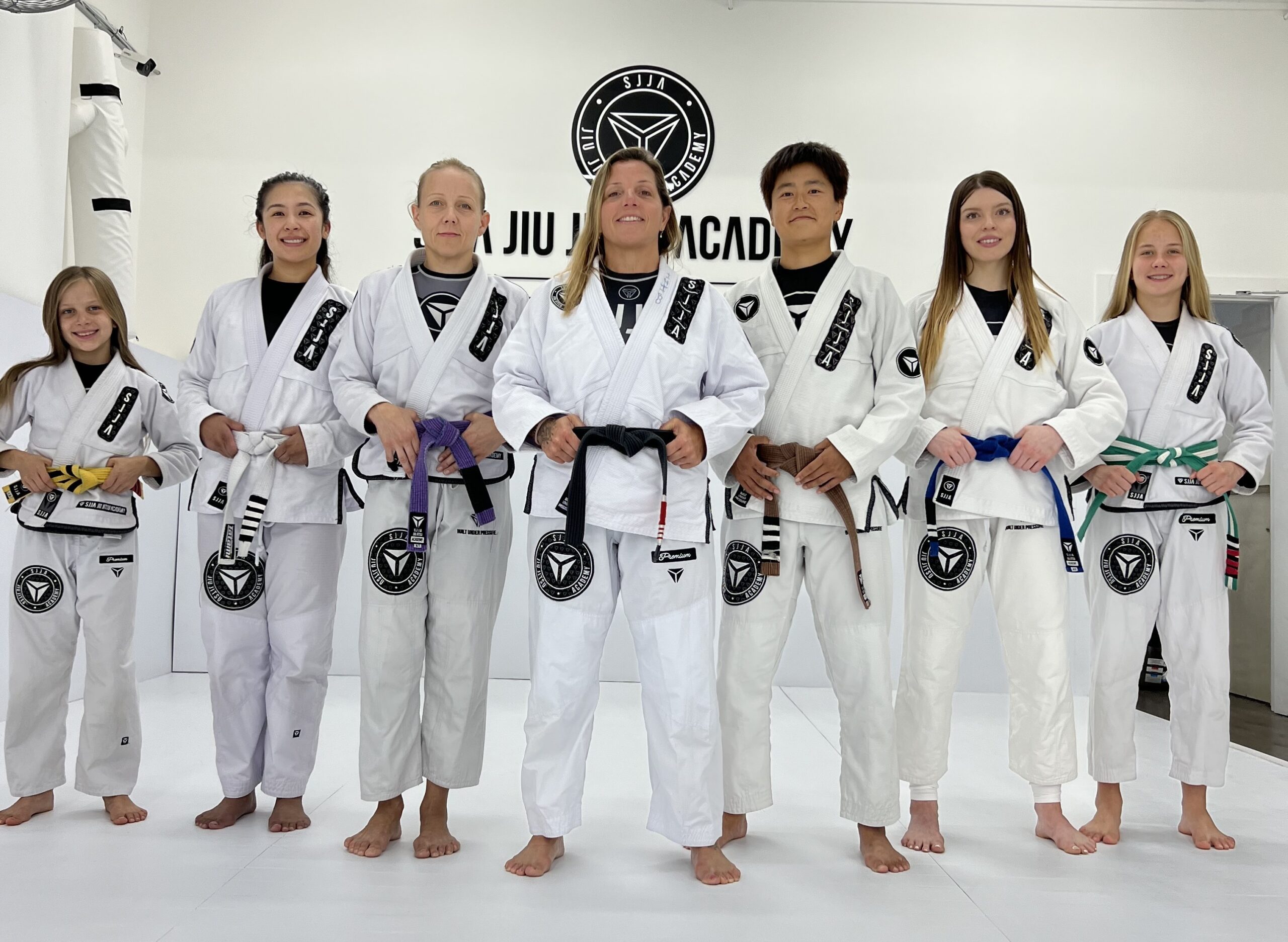
In this month’s blog, we interviewed some of SJJA’s female students and instructors to hear all about their jiu jitsu journey to date, how jiu jitsu has benefited them, and why they think it’s such an amazing sport for girls and women.
Our Interviewees:
Marcinha (Black Belt): Marcinha is a 3rd-degree black belt professor, and SJJA’s first female black belt instructor!
Daini (Brown Belt): Daini is a corporate manager, who works in the implementation of ERP systems.
Leesa (Purple Belt): Leesa is a highly experienced professional in business and operations management. She has worked for Westpac for more than 20 years, and currently sits on a number of Boards.
Victoria (Blue Belt): Victoria works as a Chief of Staff & Operations (i.e. the right-hand person to CEOs); helping them with strategy and execution, operations, and scaling and automating their business.
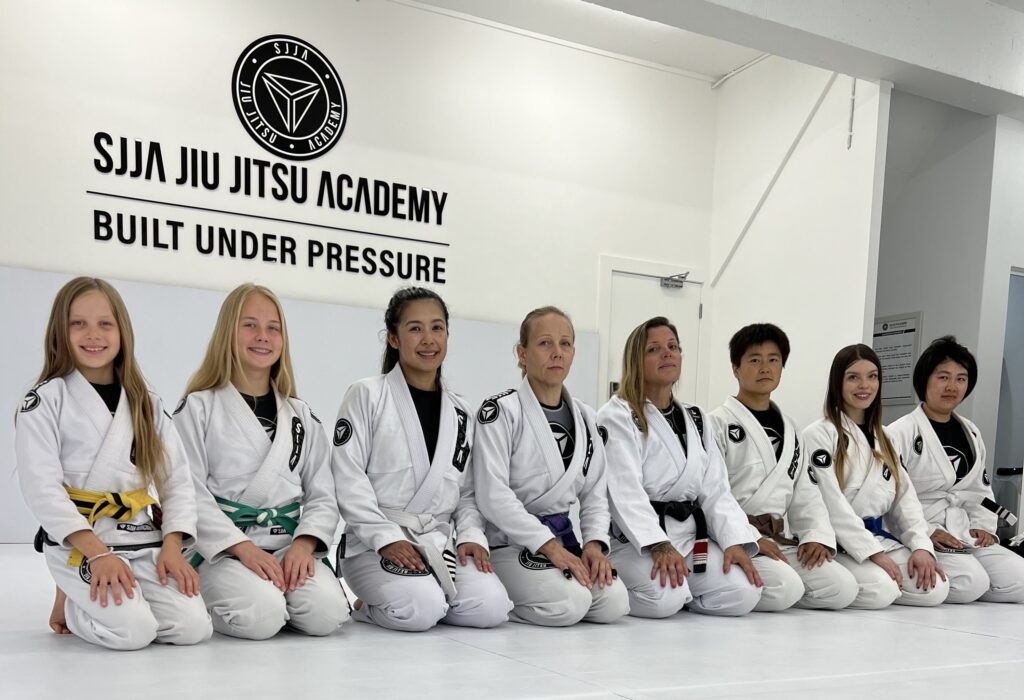
Tell us about the commencement of your jiu jitsu journey – when did you first hear about JIU JITSU and what made you take the plunge and join?
Victoria: I was living in London at the time, and had been training Krav Maga with a private instructor inside Roger Gracie Academy. After my private lesson, I started watching one of the jiu jitsu classes. One of the blue belt ladies came up to me and said: “Are you joining the ladies class that’s up next?” I replied: “Oh, no – I was just observing”. She said to me I should join the class and give it a try. I told her maybe next time, but she basically didn’t take no for an answer – she more or less forced me to do a trial class, and I’m so glad she did, because from there I was hooked.
Marcinha: I was training Muay Thai at the time in a gym that also had jiu-jitsu. One day, I walked past the jiu jitsu graduation ceremony and saw a female graduating with her blue belt, and noticed she was the only woman on the mat, amongst a sea of men. I was dazzled, and when I saw that, I wanted that for myself too. So I enrolled in jiu-jitsu at 27 years of age. I instantly fell in love with the “gentle art”, and after 3 months of training, I started competing.
Leesa: I started at 46 years of age. I wouldn’t exactly say I wanted to… for some reason I just felt I needed to. My son had started training at SJJA, and as I was watching him train, I became really drawn to it. I don’t understand why, or what it was, but something inside me told me I needed to do this and take on this challenge. A couple of months after my son started, I signed up too.
Daini: I was living in Hong Kong at the time, and had been training Muay Thai and boxing for about three years, when my friend with whom I trained Muay Thai said I should give jiu jitsu a try. So I joined a gym that had everything: CrossFit, Muay Thai, jiu jitsu, and yoga.
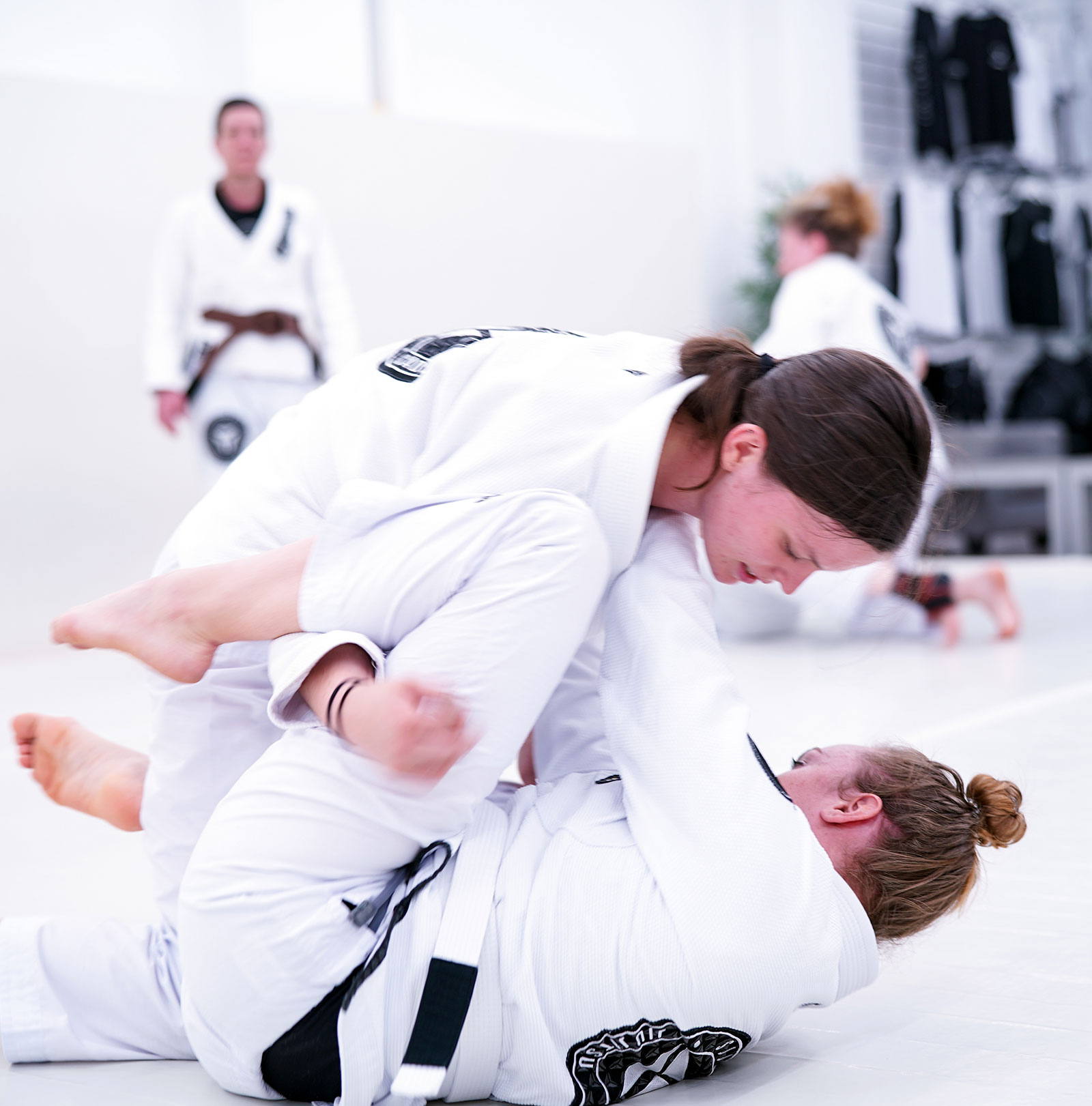
Have you trained other martial arts before? How does jiu jitsu compare to other martial arts?
Victoria: I’d been training Krav Maga for a few years, but I’d spent most of those years drilling as opposed to sparring. I knew that sparring in Krav meant getting my face punched multiple times a week, which I wasn’t particularly keen for (I wanted to retain as many brain cells as possible). Consequently, I’d very much taken a ‘fingers crossed approach’ for if I ever get stuck in a dangerous situation (ie. hoping I can recall my drills and hoping these techniques will work in the moment). Looking back, I can’t say with very much confidence that I’d have been able to protect myself, because a) my Krav/boxing skills are less likely to work on a big guy; b) I didn’t do any sparring; and c) if I ever got pushed to the ground, I’d have no idea what to do. This is why jiu jitsu is so amazing – it teaches you how to beat someone double your size using technique, you’re able to spar using 100% of your efforts without getting punched or kicked, and it covers a hypothetical fight from start to finish (ie. from standing to on the ground submissions – which is where you end up in 90% of street fights).
Daini: Prior to jiu jitsu, I’d been training Muay Thai for a few years. I find striking style martial arts in the fitness industry are more so used for cardio training, and often lacks the “art” perspective. Jiu jitsu, on the other hand, involves more strategic thinking and a much greater variety of body movements, while giving each individual the tools to develop their own unique “game”. And unlike the striking martial arts, you can spar with someone using 100% of your ability and might, and not have any serious (physical) consequence.
Marcinha: Yes, I’ve practiced Muay Thai and boxing, and although they are two incredible arts for me, they don’t compare to jiu-jitsu. I managed to have consistency since I started training jiu-jitsu, I never stopped training, this art has become part of my life and also my profession.

What are the primary reasons why you train jiu jitsu?
Daini: It’s a lot of fun – there’s a lot of playfulness in jiu jitsu. It connects mind and body in an adventurous way, and there’s always something new to it.
Victoria: Initially it was for self-defence, but since then it’s become so much more. I always recommend jiu jitsu to people in high stress jobs, as it’s a fantastic form of stress relief. When I’m lifting weights in the gym, my mind is often still thinking about work and all the things I need to get done, but jiu jitsu offers you the opportunity to truly switch off. Put it this way: when someone’s trying to choke you out in jiu jitsu, you’re in pure survival mode and 100% of your mind is focused on escaping the choke – there’s no way you’re thinking about work in that moment.
Leesa: Training is one of the best ways to be a better person. Not only does it make me healthier, happier and more fit but also connects me with a great community of people. Through training I have learned that there’s always something new waiting around every corner no matter how much you think you know about your art or sport!
Marcinha: To practice Jiu-jitsu, it takes a lot of concentration. So, I end up putting aside all day-to-day concerns and focusing on the martial art. Therefore, the modality is a great therapeutic option, and being able to spend energy, strengthen the body and mind, in addition to being a great lifestyle.
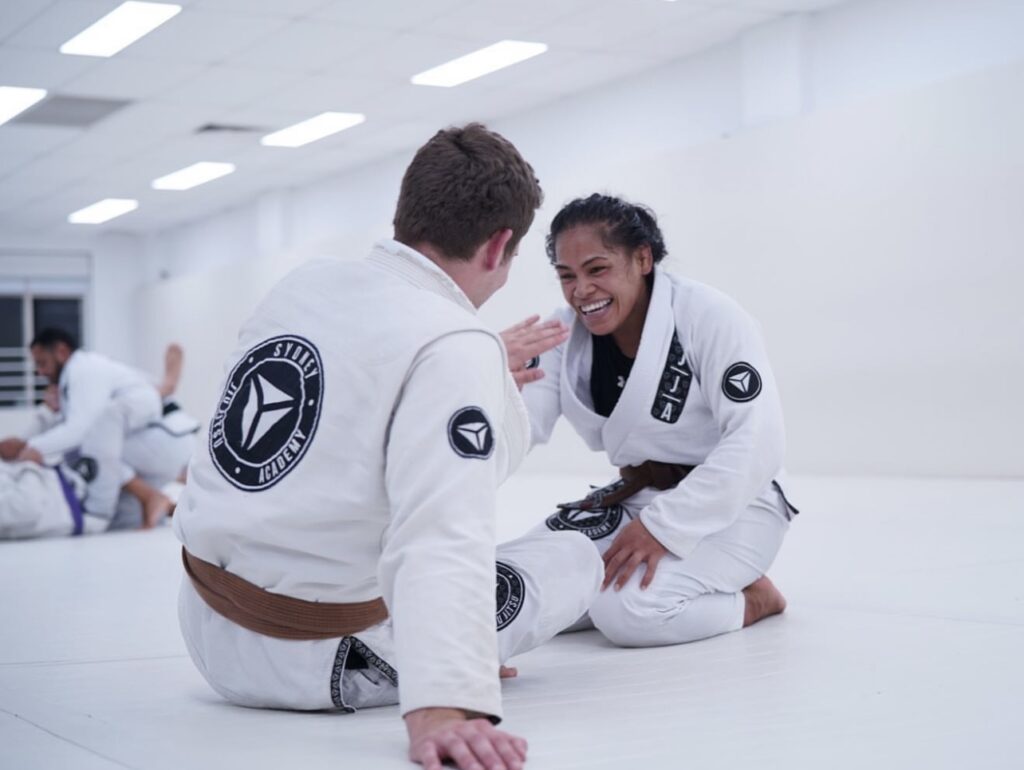
What are some things you find interesting or fascinating about training jiu jitsu?
Daini: I find the effectiveness of visual training fascinating. I read a science article discussing visualizing shooting basketball in one’s mind actually improves their success rate, and I found the same result with jiu jitsu training. If I can visualize a new technique, I could perform it better afterwards. It is a very intelligent sport.
Leesa: I’m amazed at how important the control of your breath is in Jiu-Jitsu. Good control of your breath can sustain energy levels and results in a clearer mind. Both are extremely important to perform at your best. If you get good at reading your opponents, you can also gauge when they are about to attack from a change in their breath.
Marcinha: With the practice of Jiu-jitsu, it is possible to learn countless techniques of self defense. Knowing jiu jitsu techniques enables you to immobilize an aggressor and defend yourself without using physical violence.
Victoria: I’m always fascinated by just how effective this martial art is in defeating someone significantly bigger and stronger than you. I see 55kg girls beating 90kg guys all the time and it’s incredible to watch. Little tiny adjustments to your technique can make a huge difference in immobilizing your opponent.

What are some things that jiu jitsu has taught you that apply off the mats?
Daini: Always keep your ego in check and stay calm in a difficult situation. Panicking is the last thing we want to solve a problem, and ego is something that may eventually hurt yourself more than help. And also learning how to break fall – that’s one thing I think everybody should learn regardless of what martial art they train.
Marcinha: To practice the sport and have a good use, it is necessary to respect the rules, the master and the opponent. This rigidity of the hierarchy contributes to providing discipline and respect, even outside the mat.
Leesa: You learn to get comfortable in uncomfortable situations by keeping calm and patient. Your game improves as you focus on creating your own opportunities as opposed to fearfully focusing on not failing. BJJ teaches you to persevere no matter what, even when you’re not feeling like you’re getting anywhere.
Victoria:
1) That there is something you can learn from everyone – no matter their age or level of seniority. I often see white belts or kids performing a really cool technique and will always go up to them afterwards and ask them how they did it.
2) Belts/level of seniority isn’t everything. When I was a white belt my goal was ‘get to blue belt ASAP’. I became pretty obsessed with getting it – thinking that if I didn’t get it by X date I was a failure/bad at jiu jitsu, but it was only when I got my blue belt I realised how much the belt does not matter, and that I’d set the wrong goal. Rather than viewing it as a race to the top, the goal should have been to just get better at jiu jitsu by truly understanding how the techniques work. I say this because it’s normal and extremely common to see higher belts tapping to lower belts – which I think probably keeps everyone a little grounded, and forces us to critically analyse our game and work on our weaknesses. I apply the same concepts in my professional life.
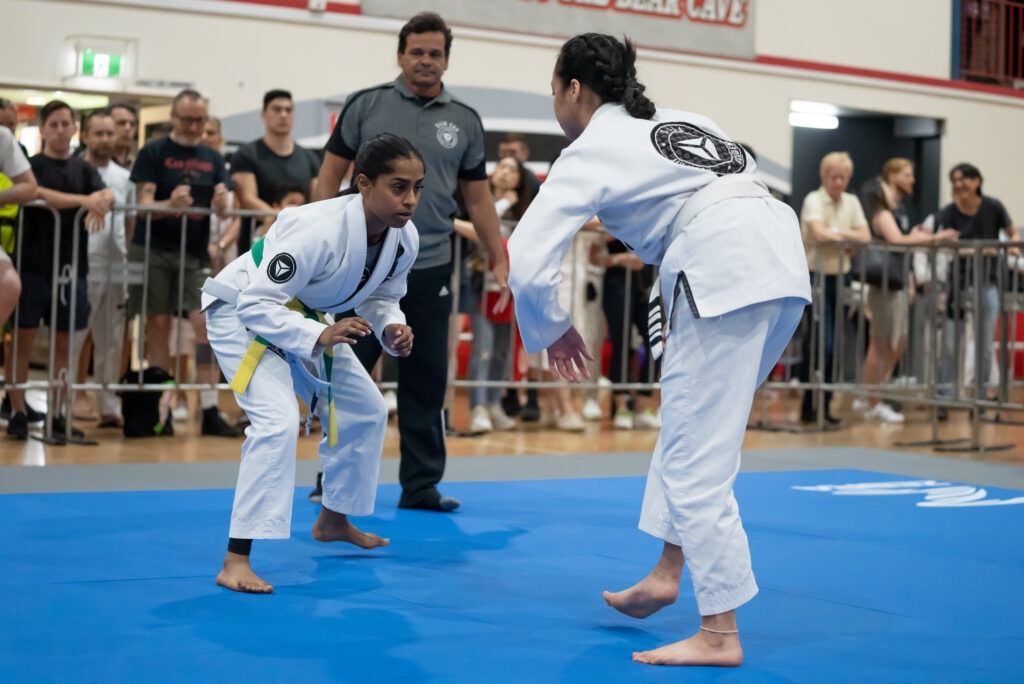
Why do you think jiu jitsu is great for girls and women?
Daini: Traditional jiu jitsu has the aspect of self-defense which I think is something all girls and women would benefit from. They always say in jiujitsu “size doesn’t matter”. Size does matter, when the skill levels are close. Which gives females even more reason to train jiu jitsu, to bring their skill level higher than someone who doesn’t train. And maybe one day will give them the advantage to be safe in real life (but hopefully it never comes to that).
Leesa: Jiu Jitsu is great for everyone, improving physical and mental well-being. Most of all Jiu Jitsu teaches resilience under pressure which helps you build confidence when things get tough!
Marcinha: The benefits for women are enormous. Starting with aesthetics, Jiu-Jitsu works all the muscles in the body, especially the abdomen, shoulders, arms and hips. It accelerates cardiovascular and respiratory capacity, and increases your flexibility. In addition to being a form of self-defense, the woman becomes much more confident in herself; by improving self-esteem and even curing personal/emotional struggles.
Victoria: The concept of jiu jitsu is to enable a smaller, weaker person to successfully defend themselves against a bigger, stronger and heavier opponent using leverage and weight distribution, which is why BJJ is one of the most effective forms of self-defence for females. Also, if you’re learning jiu jitsu for self-defence, definitely try out a competition or two. Competition is the closest simulation you have to a real fight, because when you’re competing, you’re having to manage an additional factor that is your adrenaline, which you don’t really have to deal with when doing regular sparring in the gym.
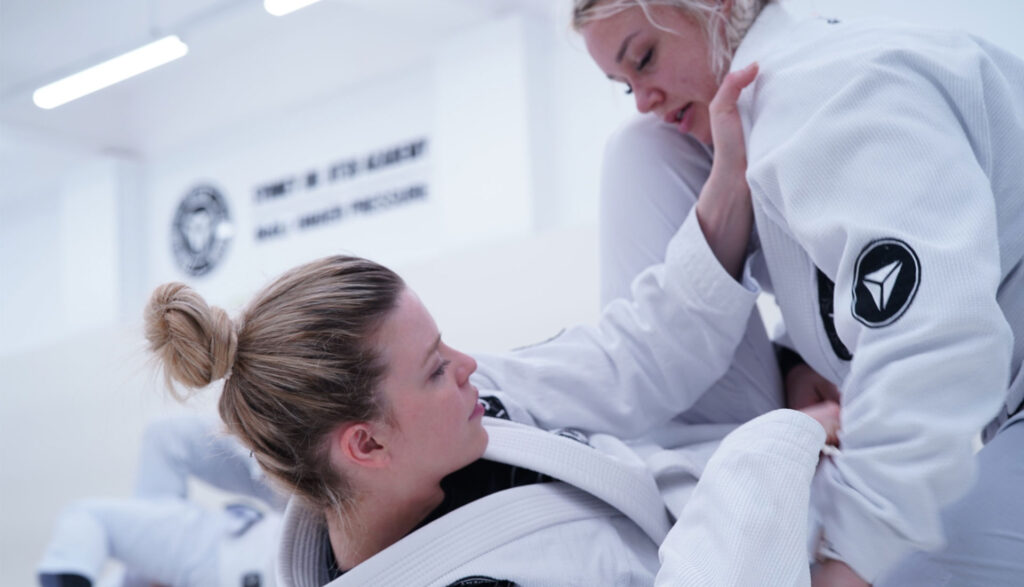
What advice do you have for girls who are thinking about training jiu jitsu but are put off by the physical contact, or have a fear of rolling with males?
Daini: Find a gym that has some girls training there already. A gym with good number of female training is an indication of a safe environment. Start with women’s class if their concern is rolling with males. Always talk to the coaches – they will find you a suitable person to train with. Everyone training jiu jitsu as an adult has gone through the phase of awkward physical contact – you will get used to it. Take it slow in the beginning and let others help you.
Leesa: Start in an all-women class and get used to the sport. Then progress by doing a mixed class with a female partner. Then as you become familiar with other males in the class, you’ll get to know who you feel comfortable rolling with. Let your instructor know you are working on your confidence in rolling with males and ask for their support in placing you with experienced and empathetic partners.
Victoria: The reality is, if someone on the street wants to harm you, there’s going to be a lot of uncomfortable physical contact and it’s going to be much more aggressive. So if you want to learn self-defence, the sooner you overcome this fear and become accustomed to this sort of physical contact, the better, and the ladies at SJJA are here to help you with this. We have an amazing female community here, and all of the women are extremely helpful and supportive of each other. Easing yourself into it is very important though. Stage 1: start off by rolling with females only. Stage 2: When you decide to start rolling with males, pick your partners carefully. It’s ok to ask the instructor before class to pair you with sensible rollers only, or signal to the instructor that you don’t want to roll with that person they’ve paired you with. Tip: Roll with the purple, brown or black belt males. You’ll notice when you roll with them that they’re using 100% technique and 0% strength, because they don’t need to use any strength at all to beat you. This is real jiu jitsu, and these are the types of people you want to roll with to avoid injury.
Marcinha: Jiu-jitsu is called “gentle art” and can be practised by children, women and men of any age. You can choose what type of training you want to do, whether it’s for competition or just as a “lifestyle,” and mostly for women as self-defense. We give the example of Kyra Gracie who has always trained with men and women and even today has a gym with many women. She isn’t afraid; on the mat she loses her fear and turns into a woman with a strength she is often unaware of. Just start training and you will fall in love with the gentle art.
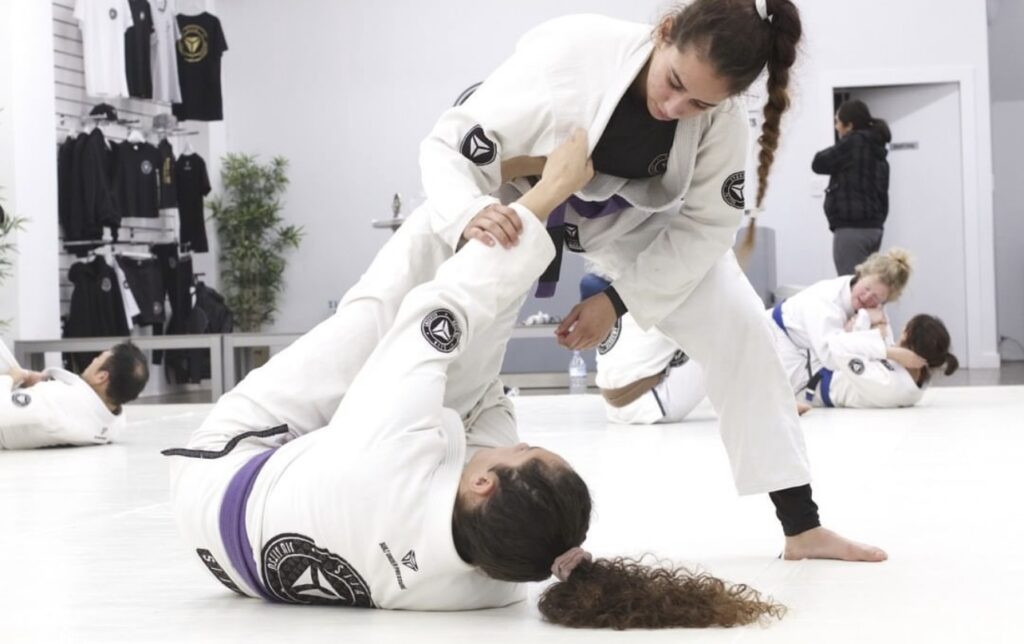
Jiu jitsu is obviously a high contact sport, and everyone has a different way of rolling. Do you have any tips for girls on what they should say to guys (or girls) who are rolling too aggressively or doing something on the mats that makes them uncomfortable/irritated?
Daini: If you find the person you are rolling with did something inappropriate to you, you should always voice out. Some people are just unaware of their actions and if you tell them they will accommodate. You should not feel shy to tell your training partner what has made you uncomfortable. If they continuously do the same thing, just stop rolling with them and inform the coach about your concern. The more we protect ourselves, the longer we can keep training.
Victoria: Call it out, because if they’re just using strength and little to no technique, they’re not doing jiu jitsu. So it’s OK to pause the fight and say “mate, you’re rolling way too aggressively”, or “you’re using all your physical strength on me over technique and you’re going to injure me”, or stop the fight altogether and say “I’m not comfortable rolling with you”.
Leesa: My best advice when rolling in any situation you’re not comfortable in is to TAP, (ie. stop the roll) no matter the reason. If they are going too aggressively you can say you want to roll lightly. If it’s some other issue, then excuse yourself after tapping and move to the side of the mat until there is an opportunity to re-join with another partner or speak to your instructor.
Marcinha: Jiu-jitsu most of the time doesn’t need strength, because the technique overcomes the strength in this case. So tell your training partner to go do some strength training at the bodybuilding gym, because if you’re just using strength without technique, that’s not jiu-jitsu. Usually, men don’t want to lose to women, and that can’t change, but I believe you can subtly say that training is about being technical, and the more technical we are, the more our game will evolve.
We hope you enjoyed this blog! please share this blog with any females you know who you think would benefit from jiu jitsu.
If you’d like to hear more stories from other female black belts, have a read of this blog: an interview with the world’s first female jiu jitsu black belt – Yvone Duarte – an Inspiration, trailblazer, pioneer, and legend. She is the original Jiujiteira with a remarkable journey of over 40 years dedicated to Jiu-Jitsu as an athlete. The first woman to receive a black-belt in Brazilian Jiu-Jitsu and now the first awarded the legendary coral belt, Mestra (Master) Yvone will forever hold an important place in the history of Brazilian Jiu-Jitsu. She is the epitome of a woman ahead of her time. Yvone broke barriers and paved the way for all women in Jiu-Jitsu, and created a profound legacy for generations to come.
